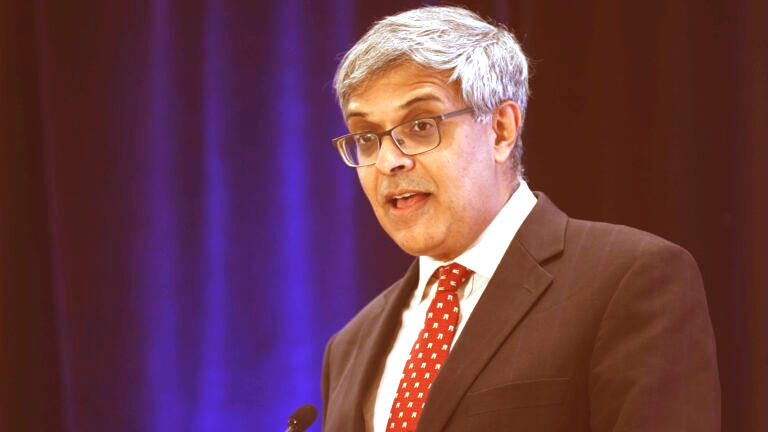
Former President Donald Trump has named Dr Jay Bhattacharya, an Indian-American physician and professor at Stanford University, as a potential candidate to lead a sweeping transformation of the National Institutes of Health (NIH). Partnering with renowned activist Robert F. Kennedy Jr. (RFK Jr.), the proposed leadership duo aims to revitalise the NIH and re-establish its reputation as a gold standard in biomedical research and public health.
Dr Bhattacharya rose to prominence during the COVID-19 pandemic as a vocal critic of stringent lockdown measures and widespread mandates. As one of the authors of the “Great Barrington Declaration,” he advocated for a targeted approach to pandemic control, emphasising focused protection for vulnerable populations while minimising disruptions to broader society. His stance sparked significant debate, drawing both support and criticism from public health experts and policymakers.
In his vision for the NIH, Bhattacharya champions a commitment to rigorous scientific inquiry, transparency, and a balanced approach to public health. Speaking recently about his aspirations, he emphasised the need for the agency to prioritise unbiased research, accountability, and the restoration of trust among the American people. “We must ensure that science is free from political agendas,” Bhattacharya stated, highlighting concerns over perceived conflicts of interest and politicisation within the NIH during the pandemic.
Trump’s decision to float Bhattacharya as a key player in NIH’s future reflects a broader shift in his approach to public health governance. Teaming up with RFK Jr., a known vaccine skeptic advocate for medical freedom, signals a departure from conventional establishment practices. While Bhattacharya’s evidence-based criticisms align with his academic background, RFK Jr.’s controversial stance on vaccines raises questions about how their collaboration might unfold in a leadership capacity.
The proposed shake-up at the NIH aligns with Trump’s promise to “drain the swamp” of bureaucratic inefficiencies and restore trust in federal institutions. Supporters of the move argue that Bhattacharya’s appointment could bring fresh perspectives and challenge entrenched paradigms in the NIH.
However, critics worry that this direction could further polarise public health discourse. Detractors of Bhattacharya’s pandemic policies argue that his approach downplayed the seriousness of COVID-19 and underestimated the risks to vulnerable populations. On the other hand, RFK Jr.’s history of challenging mainstream vaccine science has elicited strong opposition from public health authorities and experts.
Bhattacharya’s Indian-American heritage also adds an interesting dimension to this development. Born to immigrant parents, he represents a growing cadre of Indian-Americans influencing critical sectors in the United States, from technology and politics to public health. His trajectory—from a young immigrant to a Stanford academic challenging global health policies—is emblematic of the dynamism and diversity shaping modern American leadership.
This announcement highlights the ongoing struggle for the essence of American public health and science as the country prepares for the 2024 election. Their possible leadership at the NIH raises urgent concerns over the future course of scientific research and the function of public health organizations in a politically divided America, given the divisive views on both Bhattacharya and RFK Jr.
Critics stress the need for a fair and inclusive approach to governance, while proponents hope for a return to scientific integrity. It remains to be seen if this suggested collaboration will strengthen current rifts or repair the NIH’s credibility.
